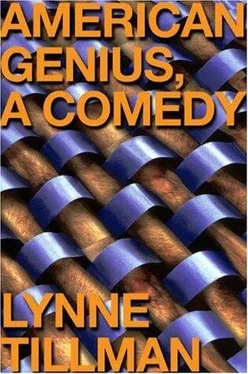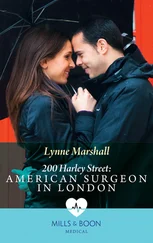In the place where I was raised, there was much ordinary obscenity, many girls disliked their faces, especially their noses, and had their noses broken and surgically fixed when they were teenagers. They were bandaged for weeks. I was invited to visit a friend whose nose had been surgically broken and fixed, who had just come out of the hospital and was lying in bed, having a party for her new self and newly straightened nose. It was attended by her friends, of which I was one, though I was much closer to her cousin, who died not long before in a car accident, a traumatic event that changed my life, though there is no visible scar covering it. This girl lay in bed, bandaged and bruised, and happy, though her eyes were bloodshot, black and blue, and her face was swollen, and her skin a fabric of purple blotches. I sat at the edge of her bed, which was covered with a fluffy white comforter, surrounded by her other friends, and looked at this girl's swollen face and bloodstreaked, black and blue eyes. I turned green, I was informed later, in a disparaging way, and fled the room, raced down the stairs, to the front lawn, which was covered in a fresh, light snow, and fell upon it and fainted. For a while, I rested in the snow, cold, relieved, dizzily unattended by my friends, not caring then that they may have thought I'd been insensitive to the girl with the purple, swollen face. But I was never again invited to such an event in a place where girls regularly had their noses broken, straightened and thinned, because they saw their noses and themselves as imperfect and ugly, inadequate, in part because of the religion into which they were born, whose clannishness produced certain facial characteristics, which they wanted to abolish while remaining tribal, though they wanted also to be accepted into the larger society by looking more like it.
An accumulation of newspaper and magazine clippings, photos of chairs, boxes of loose papers, objects, postcards and letters, yellow pads with doodles, notes toward serious projects, such as my essay on the futility of strict constructionist readings of the Constitution, various sketches and designs, lists for lifetime affairs, favorite quotations, my archive of forgotten and failed ideas, and a number of small paper and wood constructions, which lacked necessity or conclusiveness, clutter my room. I often move in my chair, restless on the seat, most chairs don't satisfy, chairs send messages about attitudes and values, their designer's character, too. A chair is an idea. I shift and squirm, because my skin itches on another's idea, since ideas can be uncomfortable. Shakespeare's line, "a Barber's chaire that fits all buttocks," amuses me, and I conjure an image of a bawdy chair, which I haven't ever seen, and a lap, to suit Samuel Johnson's "Mistaking a lady's lap for my own chair." I might sit upon a lap of carnal disaster, or I have, or I might be that lap for another. I can leave a chair but not the past, I like chairs, I like history, not my past particularly, because I'm wedded to it, there is never a respite. I can fly away from a chair, while my mother can barely rise from hers, what I take for granted takes every ounce of her will, concentration, and energy, but it's nothing for me to rise from a chair, I can rise over and over, and at her age and in her condition, she can't. I also can forget and even dismiss what I look like, because I don't really want to live in my body or in the past, even if I do, which is against my will or without my knowledge or approval, since about most things I don't have a choice. I'm compelled to trust in imagination, it may offer, when it presents itself, something like choice, even though Shelley wrote, the Count says, "we have lost our ability to imagine." But ingenious chair design disproves the poet and also the Count, unless he wouldn't consider design imaginative, and many don't because of its attachment to function, but then imagination itself as well as creativity may be attached to the human function, and they have been discredited, since overvalued and extravagantly praised, they fell from grace, and also because they spring from what can't be known, reasoned with, or controlled, the unconscious, a force of nature like that the 18th century named "genius." Of the Moderns, the Count preferred the Romantic poets, though he also liked William Burroughs and Jean Genet, but not nearly as much as the Sumerians and Greeks, and once reminisced about his memorable warrior summer of'68, recalling it with Wordsworth's phrase: the "perishable hours of life." Chairs don't perish in that sense, design doesn't either, history may, I think it may, I worry that it does, I'm not sure what happens when we forget to remember. Languages carry a history, which is often forgotten, but which also communicates itself in every word.
The Zulu alphabet contains the same letters as the English, and in English the word "Zulu" is mostly deployed descriptively and with prejudice. A Zulu is a member of the Bantu people mainly inhabiting Zululand and Natal in South Africa. The Zulus, since the 19th century, have been noted for their fiercely patriarchal social organization and aggressive defense of territory, first against the Boers in 1838 and sub sequently against the British in the Zulu Wars of 1879–1897. The Zulu noun a-ba-ntu means men or people, but in the Zulu language there are few short words, while there are many in English. My first introduction to Zulu was: "Don't behave like a Zulu," which was said to me by a teacher when I was seven, so I asked my mother what Zulu was, and she told me to look it up in the dictionary, where I learned it was a derogatory term for a black person in the U.S. At that time the only black people I knew were the women who worked in our house, the boy I roller-skated with sometimes, and Junior, who worked for my father and my uncle. A Zulu hat is a kind of straw hat with a wide brim, which I might wear under a hot sun, if I were alone, and astronomers often keep track of events according to standard solar time that corresponds to the Greenwich time zone. This is called G.M.T. (Greenwich Mean Time), U.T. (Universal Time), or Z (which is colloquially called Zulu Time). I want to ask the Count about Z Time.
I drag two cardboard boxes close to the fire, stare at the ordinary clock on the mantelpiece, and think: There is time, I can burn some of it, my clutter, and still have a bath. The fire is very excited, jumping and waving, and its heat arouses the wrath of my sensitive skin, so slowly I turn in the direction of the boxes and lift a yellowed news clipping, a veterinarian's obituary notice, she'd devoted her life to capturing and sheltering abandoned and feral cats, a life I also should lead, and feed it to the wood fire, which solicits more flame and heat. My mother adopted our exceptional family cat when I was three years old, the kitten was six weeks old, and soon, with no knowledge of the ways of cats, I taught her to beg, crawl, and roll over. The cat agreed to learn the tricks to humor me, she never scratched me, she complied, uncatlike. She also hunted mice in the woods and brought them regularly to my mother; she let herself out of the house by pushing against the screen door or leaping up to the handle and turning it with her body, and she followed my mother on her visits to friends' and neighbors' houses, where she waited outside until my mother emerged, or the cat walked into town behind my mother, accompanying her like a dog. She was devoted to my mother, who later gave her away and had her killed, but my mother remembers only the story she wrote about the cat's endearing traits and marvelous antics and how the cat played with me, her baby, and how much I loved the cat, and she always mentions the cat's devotion to her.
Mechanically, without reading the next yellowed clipping, feeling impetuous, since who knows what will be lost, I toss it into the fire's greedy mouth. A sheet of newspaper immolates what might have been meaningful at a certain time in my life and which I'd wanted to keep for research, some scrap of information I might need for the future, whose coming I wasn't interested in unless it was close, unless there was a freak event that stopped me from engaging with it, is destroyed. I feel about its disposal as I do many things, including friendships and ideas I'd once held dear but was later able to shunt off or metaphorically incinerate, and this capacity casts suspicion on what I currently regard as important. But I don't destroy photographs. Burning sheets of paper, drawings, clippings, the detrita stored to spark consciousness, relieves me, since I am unburdening myself of the past, which includes more than I can remember, but some of it I try consciously to leave behind, though I fear discarding anything, since I'm not sure finally what will be significant, and, in this way I lose history.
Читать дальше












